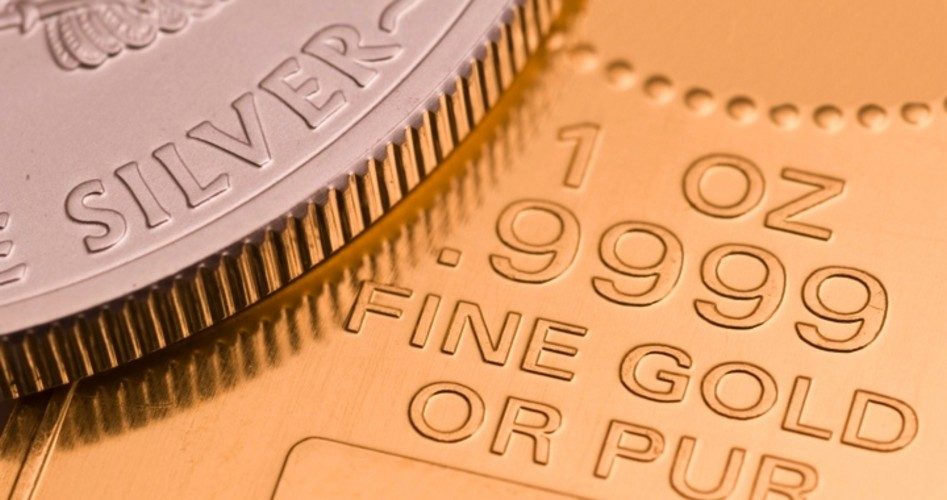
Concerned about the out-of-control Federal Reserve System and the increasingly unstable fiat dollar managed by the privately owned central bank, lawmakers in Arizona are following in Utah’s footsteps to come up with a potential alternative that protects citizens. Legislation to treat gold and silver as legal tender already sailed through the state Senate in late February, and last week, the Arizona House Financial Institutions Committee voted 4 to 2 to advance the bill as well. Activists are now working hard to keep it moving along.
If the legislation (S.B. 1439) passes through the full state House of Representatives and is signed into law by Republican Gov. Jan Brewer, gold and silver coins would become legal tender within Arizona. That means, among other important changes, that the precious metals would be treated just like debt-based Federal Reserve notes for taxation and regulation purposes. However, unlike fiat dollars, nobody would be forced to accept gold or silver currency.
The bill, which has found strong support among a broad coalition that includes economists and other experts, comes amid widespread public concern surrounding the stability of the U.S. economy and the dollar. Fears about the Federal Reserve gradually turned to outrage following the economic crisis and the central bank’s unprecedented activities, which include conjuring trillions of dollars into existence out of thin air, bailing out foreign banks and its cronies without any oversight, manipulating various markets, and much more.
In an effort to deal with the potential consequences of the Fed’s wild policies — inflation or even hyperinflation, for example — the legislation in Arizona would expand the definition of legal tender. In addition to the fiat Federal Reserve currency purportedly authorized by the U.S. Congress in violation of the Constitution, the bill would also authorize the use of gold and silver coins minted by the federal government as a medium of exchange for the payment of debts and taxes. Other precious-metals specie could also become legal tender if approved by a court ruling.
“Legal tender is money and is not subject to taxation or regulation as property other than money,” the bill states, adding, however, that nobody can compel anyone to accept precious metals against their will outside of contractual obligations. “Notwithstanding any other law, the exchange of one form of legal tender for another does not give rise to liability for any type of tax.” In other words, if the legislation is approved, trading depreciating Federal Reserve notes for gold or silver money would no longer be taxed.
Lawmakers who supported the bill said the public was behind it, too. Republican state Rep. Steve Smith, for example, told the Associated Press that the people of Arizona see the value in legalizing the use of gold and silver as money. “This is the type of currency we have had over the history of mankind,” Rep. Smith explained. During debate in the state Senate, the chamber’s president, Republican Sen. Andy Biggs outlined the choices bluntly: “You either have fiat currency which continues to inflate, which is what we have today, or you have something backing up that currency.”
On the other side, Democrat opponents employed a mixture of demonization and ridicule rather than facts and logic to attack the legislation. In the Arizona Senate, Democrat state Sen. Steve Farley, for example, proposed adding cattle and cotton to the legal tender list — a move blasted as a poor attempt at humor by an apparently clueless lawmaker with no knowledge of history or economics. State Rep. Rosanna Gabaldon, meanwhile, said the issue should be addressed by the privately owned Federal Reserve — not by Arizona’s elected representatives.
Experts, however, said the state of Arizona was a perfect place to advance efforts dealing with the problem. Economist and money manager Keith Weiner, speaking on behalf of the pro-sound money Gold Standard Institute, told the House Committee on Financial Institutions that making gold and silver legal tender would bring myriad benefits to Arizona and its people — especially considering the current monetary nightmare foisted on the people of the nation by Congress and the banking cartel that owns the Fed.
“Paper money is a debt… the debt itself can never go away, it just accumulates,” Weiner explained, offering a brief background on how fiat currencies today are loaned out with impossible-to-pay interest attached. “In the case of the dollar, the dollar is a debt to the Federal Reserve, so what this means is that the debt has been rising exponentially since 1971 when President Nixon took the last steps to eliminate the gold standard.”
The current fiat dollar system — like similar schemes such as the single euro currency — is “a recipe for worldwide bankruptcy,” Weiner told the committee. “We need a sound and honest money system such as gold and silver. I think this would be great for everybody in the state of Arizona… What I see is a huge win.” He concluded his remarks by explaining why precious metals have been, throughout human history, relied upon as money.
Another speaker, Jim Pinkerman with Arizona Constitutional Advocates, testified before the House committee about the reason why America’s Founding Fathers were so adamant about sound money. Citing Article 1 Section 10 of the Constitution, which is supposed to ensure that no state shall “make anything but gold and silver coin a tender in payment of debts,” he pointed out that Arizona was not in compliance with the Supreme Law of the Land.
“If it were, Arizona’s economy and jobs situation would improve under this stable form of money that the Founders gave us. This is safety against the devaluation of the dollar,” Pinkerman explained, adding that the legislation would help promote freedom and relief for the people of Arizona. “Gold and silver as legal tender promotes the general welfare of the people by maintaining virtually stable buying power for decades, and for centuries — even for thousands of years. The Founders found this out when they were creating the Constitution, and that is why they gave us this.”
Of course, Arizona would not be alone in adopting precious metals as legal tender. Two years ago, the state of Utah became the first to officially recognize gold and silver coins as money, drawing widespread praise from across the nation. The “Utah Legal Tender Act,” as the law is known, “recognizes gold and silver coins that are issued by the federal government as legal tender in the state and exempts the exchange of the coins from certain types of state tax liability.”
Other states, including Indiana and South Dakota, have also taken up the sound-money issue this year. In Virginia, a bill approved in the state House last month by a two-to-one margin would have created a commission to study the effects of a potential collapse of the U.S. dollar, along with possible ways to deal with the fallout. The committee would have also been responsible for considering legislation to establish a “metallic-based monetary unit” to serve as a “contingency currency” for the Commonwealth.
Republican Delegate Bob Marshall, who introduced the popular bill, told The New American that the short-term goal of the proposed law was to protect Virginians from the effects of a potential cyber-attack on the financial system. Such attacks have become increasingly frequent — some apparently conducted by foreign powers — and could result in disastrous consequences if, for instance, the banking system were to go down and leave credit and debit cards useless.
Longer term, however, there are other considerations. “If there are competing currencies that are not subject to inflation, consumers may decide to use those instead of Federal Reserve notes,” Marshall said in a phone interview. “We want to do this within constitutional parameters, but the possibility … of inflation or super-inflation is real, and I just want to have a plan B if this happens.”
While most of the efforts to restore sound money that were advanced this year appear to be on hold or defeated this time around, activists in Arizona are working overtime to ensure that the gold and silver legislation becomes law in their state. The coalition includes economists, constitutional experts, Tea Party activists, conservatives, libertarians, supporters of the Tenth Amendment and nullification of unconstitutional federal power grabs, patriots, and many others.
As the Fed doubles down on its widely criticized “monetary policy” schemes that even establishment economists have started to question, lawmakers across the country are seeking new ways to protect citizens and their wealth. The central bank has responded, unsurprisingly, with public relations gimmicks and lobbyists to protect its monopoly on currency.
Whether gold and silver becomes legal tender in Arizona and then other states, however, depends largely on how much pressure grassroots activists can muster. Pro-sound money leaders and organizations are urging people to contact their state representatives and the governor immediately to ensure their support. If the legislation is signed into law, gold and silver would be recognized as money starting next year.
Alex Newman is a correspondent for The New American, covering economics, politics, and more. He can be reached at [email protected].
Related articles:
Gold, Silver Now Legal Tender in Utah
Virginia Takes On Sound Money, Federal Assaults, and UN Agenda 21
Arizona Bill Would Ban UN Agenda 21 Within State
Fed Manipulations in the Crosshairs
Led by Rep. Ron Paul, Congress Explores Sound Money
Fed Audit: Trillions For Foreign Banks, Conflicts of Interest



